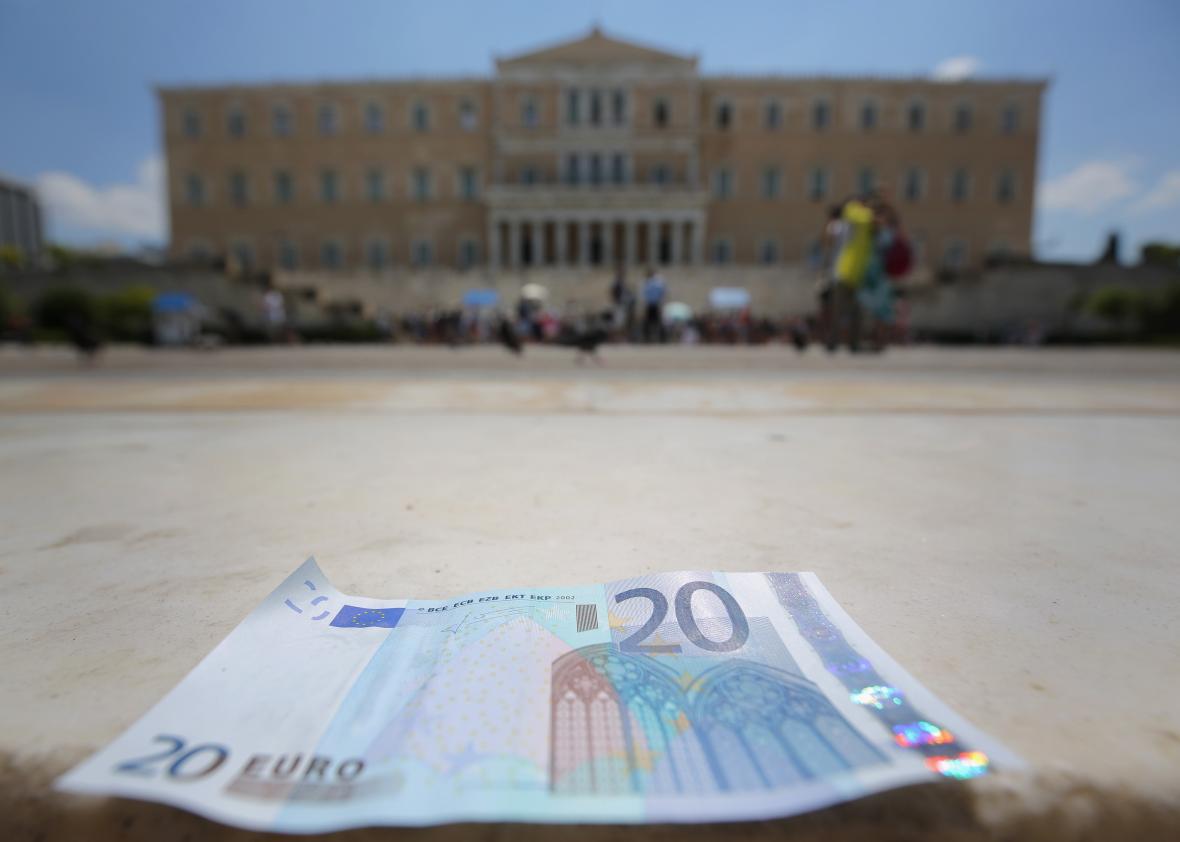Europe’s finance ministers officially approved an €86 billion bailout deal for Greece on Friday, seemingly ensuring that the country will be able to remain in the eurozone. Parliaments in Germany and the Netherlands, among other countries, still need to vote on the agreement. But it appears that, finally, the drama is drawing to a close. Greece’s rebellion against its creditors has been quashed. And Europe looks ready to lend it more money to pay off its old obligations and shore up its financial system.
There are, of course, still questions. How much debt relief will Greece get? The International Monetary Fund thinks the country needs a “significant” break on what it owes in order to make its burden sustainable, especially given the battered state of its economy. It also says it won’t chip in on this rescue effort unless Europe offers said “significant” relief. But Europe isn’t going to discuss alleviating Greece’s debts until the fall, and generally seems to only have modest concessions in mind.
And what about politics? Greek Prime Minister Alexis Tsipras only managed to push the bailout deal through his parliament with the help of opposition lawmakers after more than 40 of the 149 members of his own left-wing, anti-austerity party, Syriza, rebelled. With the governing party riven in two, the country could be heading for new elections. Maybe, as some think, that will give Tsipras a mandate to implement the painful budget measures and reforms included in the deal. Or maybe not.
And then, of course, there’s the fact the whole bailout deal seems to be premised on the somewhat ahistorical idea that Greece can run large primary budget surpluses (that is, surpluses before interest payments on debt) for years on end. As I wrote earlier this week, countries rarely pull off that feat, and those that do tend not to resemble present-day Greece—which is to say, they’re not typically trying to climb out of a grinding depression.
Speaking of which: Under the terms of the agreement, Greece is expected to face two years of recession. Now, leaving the euro wouldn’t necessarily have been any better economically (and might well have been far worse). But the pain associated with staying in the common currency is going to be acute. Athens has its bailout, and all the misery that will come with it.
